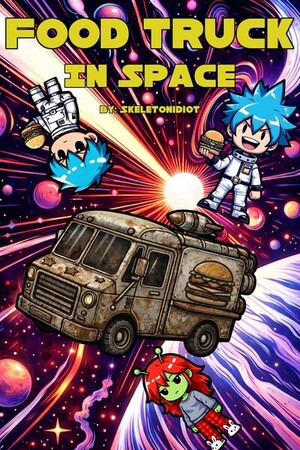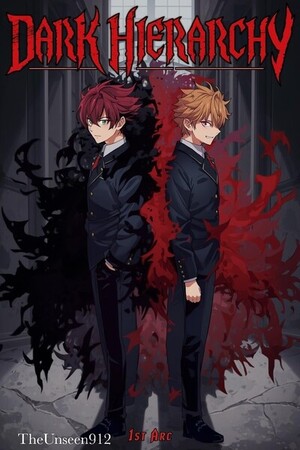Chapter 17:
MY VILLAGE
31st Century Teens
[Centuries ago, in the village of Solarius Garden]
"Father, why do these crystals glow?" I asked, scooping one of the lumorite crystals from the sea. Its dazzling blue shimmered under the sunlight, reflecting in my wide eyes as I tilted it back and forth.
My father chuckled, his voice was deep but tender. He ruffled my hair, his rough hand lingering for a moment. "Because nature made it that way, my boy. Isn’t it beautiful?"
I nodded, entranced by the crystal. "Yes, it’s so pretty."
It wasn’t just the crystals that were beautiful in our village. The trees stood tall and proud, their canopies were painted in shades of green and gold. Birds of every color filled the air with their songs. The lakes were so clear that you could see every stone at the bottom, and at night, they sparkled under the moonlight as if reflecting the stars above. Even the animals seemed to live in harmony here, their movements were calm and unafraid. And the sea was my personal favorite. I along with many other kids in the village would often play there and collect plenty of lumorite crystals for fun.
The name of our village was ‘Solarius Garden’. Our tribe, the Solagenious, lived as one with the nature. We believed that everything around us like, the food we ate, the water we drank, the air we inhaled, the land we walked on, the vibrant trees, the flowing rivers, the sea, every grain of sand and everything else was gifted to us by the Sun and the nature.
In gratitude, we made prayer a part of every significant moment in our lives. Before every meal, at the close of each day, during weddings, at the birth of a child, even to mourn the dead, we offered our prayers to the Sun, the almighty source of the beauty and joy that surrounded us.
During the Festival of Light, we danced under the sun with flowers braided into our hair. At the Harvest Moon feast, the village square was filled with laughter as everyone shared food, stories, and song. I would often see the village elders sitting together, telling tales of the past, their faces lined with the peace that comes from a life well-lived.
My father, the head of our village, was the heart of it all. He had a way of bringing people together, whether it was through his wise words or his quiet strength. Even as a child, I admired him deeply.
One evening, I followed him to a village meeting. I wasn’t supposed to be there, but curiosity got the better of me. I sat in the corner, small and unnoticed, as the adults spoke. They talked about the world beyond our shores—a world I had never seen.
“The forests are disappearing,” one elder said, shaking his head. “The animals, too. Soon there will be nothing left.”
“And the war,” another added, his voice trembling. “Every year, we hear more and more people dying in the outside world because of the world war.”
My father stood, his expression solemn. “We must be grateful for what we have,” he said. “Nature has blessed us with this haven. We must stay hidden from the world as we have till now.”
“Yes, Let us protect this haven the nature has gifted us.” An elder shouted.
“All hail the almighty sun” My father raised his fist.
“All hail the almighty sun” All the elders repeated and chanted rhythmically.
One day a couple of outsiders washed up on our shore. They were injured and unconscious and were dressed in a strange way I have never seen before. Some elders were referring to them as soldiers. The villagers gathered around, whispering in hushed tones.
“Should we save them?” someone asked.
“They’re outsiders,” another replied. “We don’t know what trouble they might bring.”
My father stepped forward, his voice was steady. “We cannot let them die. So what if they are outsiders? They are humans, just like us.”
The villagers hesitated, but their respect for my father outweighed their fear. “Alright,” one of them said. “But only because you say so.”
My mother and the other women worked tirelessly to heal the soldiers with herbs and leaves. When they woke up, they were astonished by our village. “It’s like paradise,” one of them said, staring at the lumorite crystals. “We’ve never seen anything like this.”
After some days, they left. They seemed more than satisfied with the way we treated them. But, they didn’t leave us alone. Days later, they returned with merchants. The traders brought gifts and spoke of trade, promising prosperity in exchange for our natural resources like crystals and herbs. My father, after discussing with the village elders agreed.
At first, everything seemed to be going well. The arrival of outsiders brought new tools, advanced technology, and knowledge we had never known before. It felt like progress, like a gift to improve our lives. But as the years went by, things began to change in ways we couldn’t foresee. By the time I reached adolescence, the natural beauty of our village was fading. The lush greenery and serene landscapes were replaced by roads, buildings, and structures that didn’t belong. Children who used to play in the beach earlier were now addicted to the gadgets and chips brought by the outsiders.
Foreigners began settling among us, their numbers growing with each passing day. At first, we welcomed them, unaware of what was to come. My father grew quieter, his eyes shadowed with worry. He could see what many of us, myself included, couldn’t. He tried to warn the villagers, pleading with them to protect the traditions and heritage of our village, but it was too late. The unity we once shared was breaking.
The villagers, enchanted by the conveniences of foreign technologies and gadgets, became dependent on them without even realizing it. Slowly, our self-reliance faded, and so did our control over our own lives. We were blind to how deeply we were being pulled into dependence on the outsiders.
As the days passed, the balance of power in our village shifted completely. The outsiders began to dominate every discussion about the future of our home, their voices growing louder than our own.
And then came a wave of foreign diseases. They swept through the village like a merciless storm. It was clear that these illnesses were brought by the outsiders. They tore through our community, claiming lives relentlessly. The cries of the dying filled the air, mixing with the wails of those mourning their loved ones.
In desperation, my father begged the outsiders for help. But they showed no compassion. “If you want the antidote,” they said, their faces cold and unyielding, “you’ll do as we say.” Those words shattered whatever spirit we had left. The desperation to survive broke our unity completely. My father, the strongest man I had ever known, seemed to shrink before my eyes.
Our people became slaves in their own land, forced to obey every command just to survive another day. We had always believed that the land was not ours to own, that it was a gift from nature to be shared and cherished. But that belief became our downfall. Without legal papers to claim the land, the outsiders took advantage of us, forging their own documents and declaring themselves the official owners of our motherland.
Many of us tried to fight back, but they were no match to the advanced weapons of outsiders.
In just a few short years, when I turned into an adult, our village turned into a living hell. The outsiders didn’t stop at taking control; they began sending criminals and convicts to settle among us. Some of them even included dangerous murderers and serial killers. Our once-thriving home, filled with peace and harmony, was now a place of fear and despair.
What had started as an opportunity for growth became a nightmare we couldn’t escape.
My father’s health declined, his heart was broken by the ruin of our village. Out of depression, he died one morning, his hand was gripping the crystal he had always carried. My mother, unable to bear the loss, took her own life soon after. I tried desperately to save my sister but I failed. My sister was being violated right in front of my eyes just like many other young women of our village.
With my broken ribs and bleeding nose, I somehow dragged myself to the beach. I didn’t know what to do anymore. I sat by the sea, scooping out the lumorite crystals like I had as a child. But they no longer filled me with wonder. They were just a distraction I desperately needed as I tried to forget about everything. I kept scooping out lumorite crystals again and again and again. Days turned into weeks. I ate sand and drank seawater, my body and mind already broken under the weight of despair. People ignored me as they thought I was a crazy man. One day, a foreigner kid threw a small, broken drone at my face. It caught my attention. I tinkered with it, repaired it and broke it again and again until I grew bored.
I knew I didn’t have many days to leave. In a final act of defiance, I transferred my memories into the drone’s chip. It was my way of saying, “I was here. We were here. The solagenius tribe was here.”
When I died, the drone carried on. It roamed the shores, collecting lumorite crystals as I once had. Over centuries, it rebuilt itself, growing larger and more complex. The Solar Garden became a desert, its beauty erased. But the sea remained, and so did the crystals.
Why did the drone continue? Perhaps because the crystals were a piece of me, a piece of us. They were the last fragment of a world that had been whole, the only thing still shining in a land of sand.
CHAPTER 17 END




Please sign in to leave a comment.